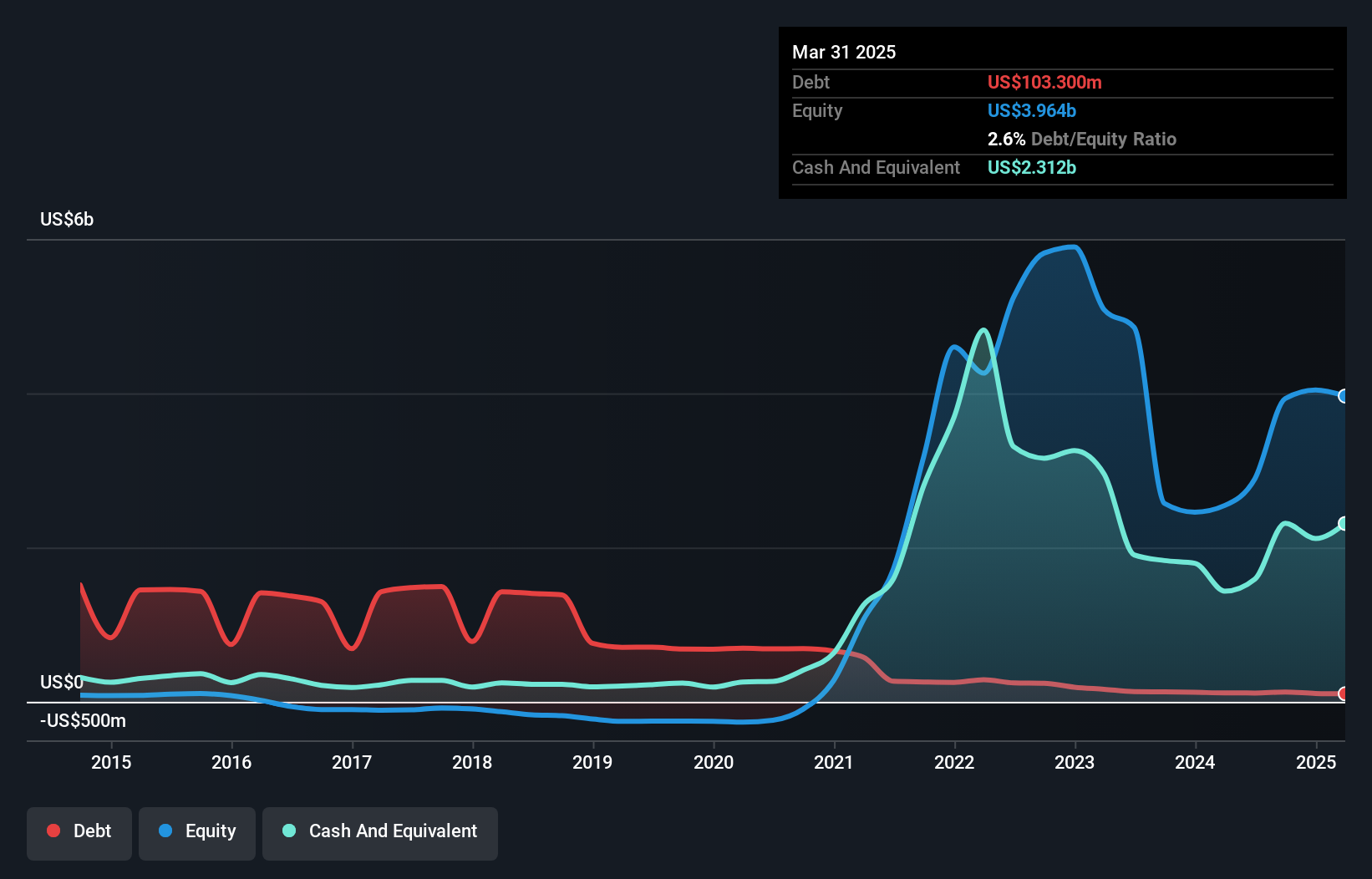
David Iben put it well when he said, 'Volatility is not a risk we care about. What we care about is avoiding the permanent loss of capital.' When we think about how risky a company is, we always like to look at its use of debt, since debt overload can lead to ruin. We can see that ZIM Integrated Shipping Services Ltd. (NYSE:ZIM) does use debt in its business. But is this debt a concern to shareholders?
When Is Debt Dangerous?
Generally speaking, debt only becomes a real problem when a company can't easily pay it off, either by raising capital or with its own cash flow. If things get really bad, the lenders can take control of the business. However, a more common (but still painful) scenario is that it has to raise new equity capital at a low price, thus permanently diluting shareholders. Of course, the upside of debt is that it often represents cheap capital, especially when it replaces dilution in a company with the ability to reinvest at high rates of return. The first step when considering a company's debt levels is to consider its cash and debt together.
How Much Debt Does ZIM Integrated Shipping Services Carry?
As you can see below, ZIM Integrated Shipping Services had US$103.3m of debt at March 2025, down from US$114.8m a year prior. But on the other hand it also has US$2.31b in cash, leading to a US$2.21b net cash position.

How Healthy Is ZIM Integrated Shipping Services' Balance Sheet?
According to the last reported balance sheet, ZIM Integrated Shipping Services had liabilities of US$2.79b due within 12 months, and liabilities of US$4.73b due beyond 12 months. Offsetting these obligations, it had cash of US$2.31b as well as receivables valued at US$760.0m due within 12 months. So it has liabilities totalling US$4.46b more than its cash and near-term receivables, combined.
This deficit casts a shadow over the US$2.13b company, like a colossus towering over mere mortals. So we'd watch its balance sheet closely, without a doubt. At the end of the day, ZIM Integrated Shipping Services would probably need a major re-capitalization if its creditors were to demand repayment. ZIM Integrated Shipping Services boasts net cash, so it's fair to say it does not have a heavy debt load, even if it does have very significant liabilities, in total.
View our latest analysis for ZIM Integrated Shipping Services
Although ZIM Integrated Shipping Services made a loss at the EBIT level, last year, it was also good to see that it generated US$2.8b in EBIT over the last twelve months. The balance sheet is clearly the area to focus on when you are analysing debt. But it is future earnings, more than anything, that will determine ZIM Integrated Shipping Services's ability to maintain a healthy balance sheet going forward. So if you want to see what the professionals think, you might find this free report on analyst profit forecasts to be interesting.
But our final consideration is also important, because a company cannot pay debt with paper profits; it needs cold hard cash. While ZIM Integrated Shipping Services has net cash on its balance sheet, it's still worth taking a look at its ability to convert earnings before interest and tax (EBIT) to free cash flow, to help us understand how quickly it is building (or eroding) that cash balance. Over the last year, ZIM Integrated Shipping Services actually produced more free cash flow than EBIT. That sort of strong cash generation warms our hearts like a puppy in a bumblebee suit.
Summing Up
Although ZIM Integrated Shipping Services's balance sheet isn't particularly strong, due to the total liabilities, it is clearly positive to see that it has net cash of US$2.21b. The cherry on top was that in converted 144% of that EBIT to free cash flow, bringing in US$4.0b. So although we see some areas for improvement, we're not too worried about ZIM Integrated Shipping Services's balance sheet. When analysing debt levels, the balance sheet is the obvious place to start. However, not all investment risk resides within the balance sheet - far from it. We've identified 3 warning signs with ZIM Integrated Shipping Services (at least 1 which is potentially serious) , and understanding them should be part of your investment process.
When all is said and done, sometimes its easier to focus on companies that don't even need debt. Readers can access a list of growth stocks with zero net debt 100% free, right now.
Have feedback on this article? Concerned about the content? Get in touch with us directly. Alternatively, email editorial-team (at) simplywallst.com.
This article by Simply Wall St is general in nature. We provide commentary based on historical data and analyst forecasts only using an unbiased methodology and our articles are not intended to be financial advice. It does not constitute a recommendation to buy or sell any stock, and does not take account of your objectives, or your financial situation. We aim to bring you long-term focused analysis driven by fundamental data. Note that our analysis may not factor in the latest price-sensitive company announcements or qualitative material. Simply Wall St has no position in any stocks mentioned.